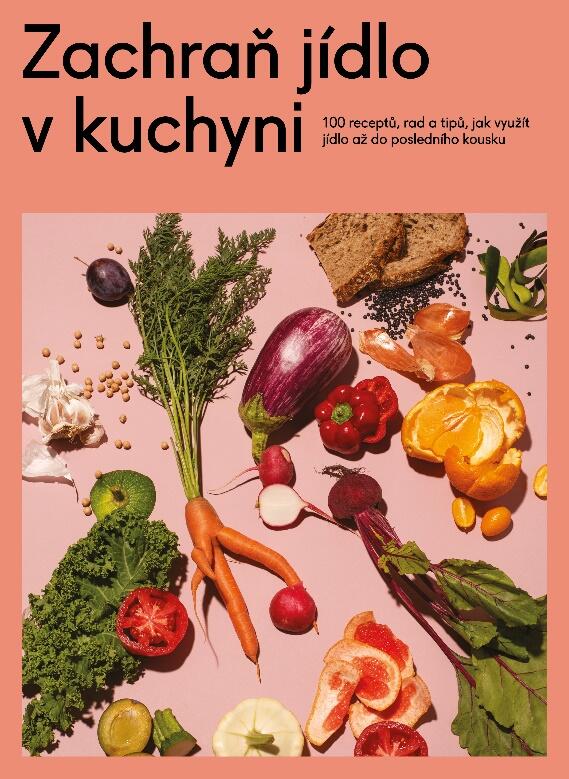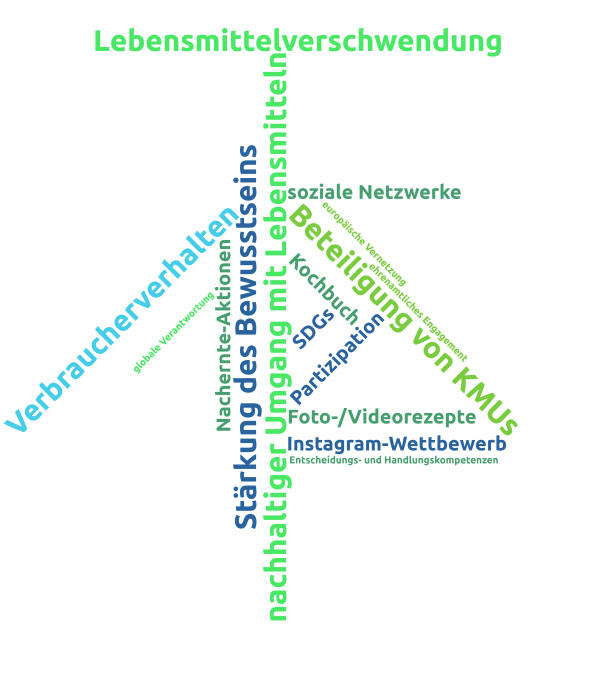Each of us can prevent food waste
International project funding
Subject and goals of the project
The object of the project was to teach decision-making and action skills in nutrition and the sustainable use of food. Zachraň jídlo focused on identifying the causes of food waste and developing measures to prevent it. In order to gather the relevant findings, existing studies were evaluated and the company conducted its own surveys and market analyses. In addition, producers and retailers were approached and interviewed to collect data on food labeling. In addition, 145 round table discussions were held with representatives of the food industry.
The project also aimed to disseminate information to consumers who significantly contribute to food waste through their actions. In particular, young people aged 13 to 35 were targeted through an Instagram contest, as well as amounts and photo/video recipes on social networks (Facebook, YouTube and Instagram) and on the partners' websites and in 24 electronic newsletters. They were to develop a greater awareness of the problem of food waste.
In addition, a cookbook (4 600 copies; see also YouTube video) with recipes and tips was created and published specifically for the adult target group. The contents of the book include not only recipes, but also background information on food waste as well as concrete tips and advice on how everyone can contribute to less waste. In the Czech Republic, in addition to consumers, representatives of government institutions and food production were also involved in developing a strategy to prevent food waste (cross-sector cooperation).
The public was made aware of the issue both in the Czech Republic and in Germany through various campaigns and at events in public spaces (networking between individual actors and public participation). The 74 post-harvest actions played an important role in this regard, in which 38 994 kilograms of food were successfully saved with the support of 250 volunteers. An expansion of the Czech network by 297 new contacts, where it became clear how much food is lost in the production process alone. In addition, participants were approached about the project at three major events and informed about ways in which they themselves can contribute to less food waste. They were also encouraged to participate in further campaigns and to use more food in their own households instead of throwing it away. In the work package Increasing the competitiveness of small and medium-sized enterprises of farmers, two new cooperations (social networks as a marketing tool + further processing of vegetable surpluses) were initiated on the Czech side.
Innovation and exemplary nature of the project
The innovation of the project consisted in particular in the contemporary form of communication and information transfer to the target groups, which was expressly not intended to instruct but to inform and motivate behavioral changes. In line with the principles of global responsibility, the goal was to show that one can avoid or reduce food waste by changing one's own consumer behavior.
This was also in line with innovative communication channels (e.g. Facebook, YouTube and Instagram), innovative activities (e.g. re-harvesting of deficient fruits, new high-profile events / happenings) and innovative ways of building the partnerships / networks (involving stakeholders in the food chain as well as government authorities in the form of the discussion events).
For the German Tafeln, the topic of knowledge transfer and project work with young volunteers was new. The more than 920 Tafeln live from voluntary commitment. With the project, young people could be directly inspired for the Tafel work as well as for the topics of volunteer work, avoidance of food waste in combination with European networking.
Special aspects of the project
The sustainable impact of the project can be seen, among other things, in the cookbook, which had to be reprinted after the end of the project due to high demand, in the continuously supplemented video recipes on the Czech partner's website, and in the post-harvest activities, which were expanded to additional locations.
An important aspect of the project was the participation of SMEs – through two new cooperation projects that have been adapted to the needs of the specific SME and have thus contributed to the prevention of food waste, as well as through the expansion of the post-harvest network to include new cooperation companies and volunteers.
Of the 17 defined SDGs, Goal 12 "Sustainable consumption and production" and Goal 17 "Strengthen means of implementation and global partnership" were taken into account in the project implementation.
Funding subject: Sustainable nutrition and sustainable handling of food
Cooperation partners:
Locations: Germany, Czech Republic
Funding period: October 2017 to February 2020, Download final report
Project costs: Total volume: 236 557 Euro, DBU funding: 124 141 Euro
DBU-AZ: 34015
Note: Translation of the German version with DeepL
Last updated: 09.11.2021



